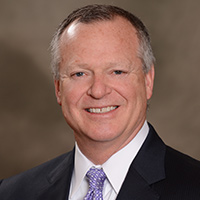Any port in a storm: How we can help each other navigate the challenging months ahead

Someday, if we’re lucky, we will recount pandemic stories to our younger colleagues or perhaps to our grandchildren. Those who work in healthcare will share tales of heroism, resourcefulness, fear, grief, loss and bravery. My daughter, a physician assistant in a cardiothoracic intensive care unit, has shared many such stories with me already, which keeps me grounded in the true nature of the service provided by healthcare professionals.
But I suspect that few will dwell on the phase we are in now, often called pandemic fatigue or burnout. I feel it too — I’m tired of all the steps that are necessary to do everyday activities safely and of being unable to do so many things I like. I just wish this were over. After a burst of optimism when COVID-19 vaccines were approved, reality is setting in: We can’t be certain when this will be over. We don’t even know for sure what over means.
Last spring, a saying made the rounds on social media: “We are all in the same storm, but we are not in the same boat.” That message still resonates. Even those who work within the same hospital are not in the same boat. The pressures people face in various roles are vastly different. Add on individualized personal stressors and it’s easy to see that people are coping with different types and levels of pandemic stress.
For physicians and other front-line workers, in particular, it’s taking a toll. Some are retiring early; others are simply leaving the field.
So what can finance professionals do? Even though we aren’t trained counselors, keep in mind that we are all “in the same storm.” When you encounter a colleague who seems to be struggling, put your personal agenda on pause. Just stop. Then, ask your colleague an open-ended question beyond the perfunctory, “How are you?” You might even try for a little levity. If they choose to share, listen, with empathy. You’re not expected to solve their problem. You probably can’t. But simple active listening shows that you care. And sometimes that’s enough to make a difference.
Last summer, as I was reflecting on issues related to racial injustice, the stop/listen/care framework came to mind. It led me to write a message to the HFMA community. I commented then that we, as individuals, can’t fix all that ails either society or healthcare. But that doesn’t stop us from trying to improve them. That process starts with caring. It’s the same with pandemic fatigue. We can’t cure it. But we can be supportive of each other as we each navigate these challenging times. We can, and should, care.





